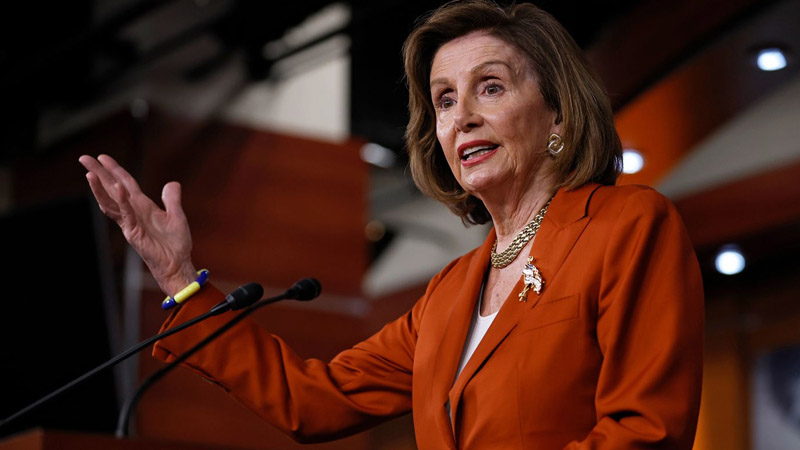The Supreme Court of the United States finds itself at a critical juncture as it prepares to deliberate on the former president’s claim of total immunity. This decision has far-reaching implications, not just for the individuals involved but for the very fabric of American democracy. At the heart of the matter is the fundamental principle that no one, not even a former president, should be above the law.
According to Nancy Pelosi X Post on Thursday, February 29, 2024, the decision to hear this case places the Supreme Court on trial, not only in the eyes of legal scholars but in the court of public opinion.
The American people are keenly watching to see if the highest court in the land will uphold the bedrock value of accountability and equality before the law. Nancy Pelosi, the Speaker of the House, has been vocal about the stakes involved.
She emphasizes that the court’s decision will shape the trajectory of the nation’s commitment to the rule of law. Pelosi underscores the importance of affirming that, in the United States, no individual, regardless of their previous position, is immune to legal scrutiny.
The former president’s claim of total immunity raises questions about the balance of power, accountability, and the resilience of democratic institutions. It challenges the very essence of a government founded on the principles of checks and balances. If the court were to rule in favor of complete immunity, it could set a precedent that undermines the core values that have guided the nation since its inception.
One of the primary concerns is the potential erosion of accountability. Upholding the idea that a former president is beyond the reach of the law could create a dangerous precedent, creating a perception of a privileged class immune to legal consequences. Such an outcome could erode public trust in the justice system and fuel sentiments of elitism.
Moreover, the decision holds significance for the ongoing discourse on presidential powers. While the presidency comes with certain privileges, it is imperative to ensure that these powers do not become a shield against accountability. The court’s ruling will be a litmus test for the resilience of the American democratic system in the face of challenges to its core principles.
The case also highlights the delicate dance between the executive and judicial branches of government. The separation of powers is a cornerstone of the U.S. Constitution, designed to prevent the concentration of authority in one branch. The court’s decision will either reinforce this separation or potentially tilt the balance in favor of executive immunity.
Legal experts and scholars are closely monitoring the arguments presented before the Supreme Court. The court’s responsibility is not only to interpret the law but also to safeguard the principles that underpin the democratic framework.
It must grapple with the complexities of balancing presidential authority with the need for accountability – a task that demands a meticulous examination of legal precedents and constitutional principles. As the court begins its deliberations, it faces a defining moment in American history.
The decision will echo through the corridors of power, shaping the future trajectory of the nation’s commitment to justice, accountability, and the rule of law. The eyes of the nation are on the Supreme Court, awaiting a verdict that will either strengthen the foundations of democracy or introduce cracks in its venerable structure.


